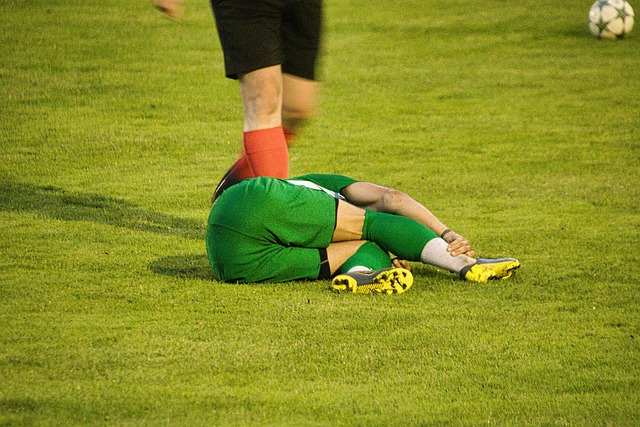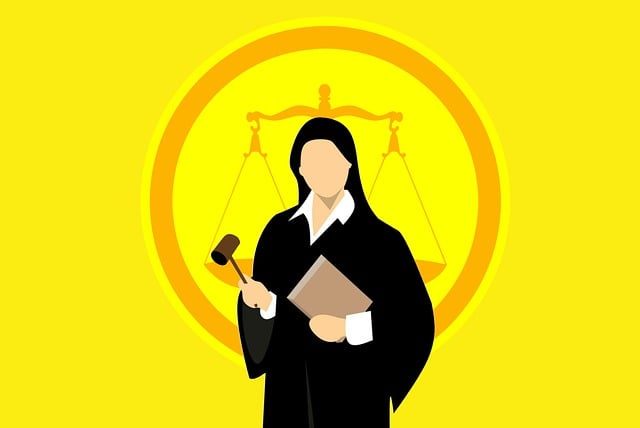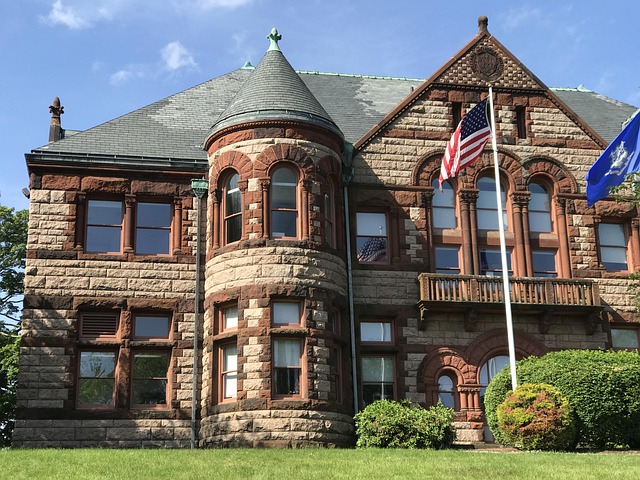When to Reach Out: Navigating Soft Tissue Injury Claims in Boca Raton

Soft tissue injuries, often caused by accidents or repetitive stress, can range from minor to severe…….
Welcome to an in-depth exploration of a specialized legal field: the soft tissue injury lawyer in Boca Raton, Florida. This article aims to serve as a comprehensive guide, shedding light on various aspects that shape this niche practice area. We will navigate through its definition, historical evolution, global impact, economic implications, technological influences, regulatory frameworks, challenges, and future prospects. By delving into these topics, readers will gain valuable insights into the intricate world of soft tissue injury law and its role in society.
Definition: A soft tissue injury lawyer, specializing in Boca Raton, is a legal professional who focuses on cases involving non-fatal injuries to muscles, tendons, ligaments, nerves, and other flexible tissues of the body. These injuries often result from accidents, such as car collisions, slips and falls, or sports-related incidents. The primary role of such lawyers is to advocate for clients’ rights and secure fair compensation for their suffering, medical expenses, and lost wages.
Historical Context: The concept of soft tissue injury law has evolved over the past few decades, mirroring advancements in medicine and a growing awareness of pain and suffering as legitimate claims. In the early 1900s, personal injury law was predominantly focused on fatal accidents and severe physical injuries. However, as medical science progressed, it became evident that non-fatal injuries could have significant long-term effects on individuals’ lives. This shift led to the development of specialized legal practices, including soft tissue injury law.
Significance: Soft tissue injury lawyers play a crucial role in holding negligent parties accountable and ensuring victims receive adequate compensation for their pain, suffering, and related expenses. These cases often involve complex medical and legal processes, requiring lawyers to possess expertise in both areas. In Boca Raton, a thriving legal hub, these specialists cater to the unique needs of clients within this diverse community.
International Influence: Soft tissue injury law has made its mark globally, with many countries adopting similar frameworks to address non-fatal injuries. The United States, including Florida’s Boca Raton, serves as a prime example, where personal injury laws have evolved to recognize the value of pain and suffering damages. This trend is mirrored in various regions worldwide, such as Europe, Asia, and Australia, each adapting legal systems to accommodate the specific challenges posed by soft tissue injuries.
Regional Trends:
North America: The United States and Canada have seen a rise in soft tissue injury litigation, often driven by strict liability laws and a culture of seeking compensation for pain and suffering.
Europe: European countries are witnessing an increase in such cases due to improved medical understanding of chronic pain conditions and stricter patient protection laws.
Asia-Pacific: This region, including Australia and Japan, is experiencing rapid urbanization and aging populations, leading to a higher incidence of soft tissue injuries and subsequent legal claims.
Market Analysis: The global soft tissue injury law market is substantial and growing. According to a 2022 report by Grand View Research, the market size was valued at USD 45.7 billion in 2021 and is expected to expand at a compound annual growth rate (CAGR) of 5.8% from 2022 to 2030. The United States dominates this market, accounting for a significant share due to its robust legal system and high prevalence of motor vehicle accidents.
Investment Patterns: Law firms specializing in soft tissue injury cases attract substantial investments from venture capital firms and private equity groups. These investments fuel the development of advanced case management systems, legal research tools, and marketing strategies tailored to this niche practice area.
Economic Impact:
Client Compensation: Soft tissue injury lawyers facilitate the payment of damages to clients, including medical expenses, lost wages, reduced earning capacity, and pain and suffering. These payouts contribute to individuals’ financial stability and overall economic well-being.
Medical Research: The legal demand for expertise in soft tissue injuries has spurred medical research, leading to improved treatments and a better understanding of chronic pain conditions.
Employment: The industry supports numerous jobs, from lawyers and paralegals to support staff and experts who assist in case preparation.
Digital Case Management: Law firms are increasingly adopting sophisticated digital case management systems to streamline processes. These tools enable efficient document management, client communication, and case tracking, enhancing productivity and client service.
Legal Research Platforms: Advanced legal research platforms provide lawyers with access to vast databases of case law, statutes, and regulatory materials related to soft tissue injury cases. This facilitates more informed decision-making and strategic planning.
Medical Expertise Online: The rise of telemedicine has made it easier for lawyers to consult with medical experts remotely. Through video conferencing and online platforms, they can access specialized knowledge without the need for physical consultations, saving time and resources.
Artificial Intelligence (AI): AI is revolutionizing legal practice, including soft tissue injury law. It aids in document review, contract analysis, and predictive analytics, helping lawyers identify potential case outcomes and develop stronger strategies.
Legal Frameworks: Soft tissue injury law is governed by a complex interplay of federal, state, and local regulations. In the United States, each state has its own personal injury laws, including provisions specific to soft tissue injuries. For instance, Florida’s statutes outline the time limits for filing claims, the types of damages recoverable, and the requirements for proving liability.
Key Policies:
Statute of Limitations: This determines the time period within which a lawsuit must be filed after an injury occurs. In Florida, the statute of limitations for personal injury cases is generally four years from the date of the incident (Florida Statutes § 95.11).
Damages: Laws specify the types of damages that can be awarded, including compensatory (actual damages) and punitive (punishing negligent parties) damages. Florida allows for a range of recoverable damages in soft tissue injury cases.
Liability: Legal principles define the conditions under which a defendant can be held liable for another person’s injuries. In Florida, negligence is the primary basis for establishing liability.
Regulatory Bodies: Various regulatory bodies and professional organizations oversee legal practices, ensuring compliance with ethical standards and professional conduct. For instance, in the US, state bars regulate attorney conduct, discipline lawyers, and maintain attorney registries.
Main Challenges:
Medical Complexity: Soft tissue injuries can be challenging to diagnose and treat, leading to disputes over the extent of damages. Lawyers must navigate medical jargon and collaborate with experts to advocate effectively for their clients.
Time-Consuming Nature: These cases often involve extensive discovery processes, expert witness consultations, and negotiations, making them time-intensive. This can impact case outcomes and lawyer-client relationships.
Statute of Limitations: Time constraints pose a significant challenge, as failure to file within the prescribed period results in the loss of legal recourse. Lawyers must educate clients about these deadlines and take prompt action.
Criticisms and Strategies:
Overlitigated Cases: Critics argue that soft tissue injury cases often lead to overlitigation, with minor injuries being pursued as lucrative claims. To counter this, lawyers can focus on promoting alternative dispute resolution methods, such as mediation, to resolve cases efficiently.
Medical Misdiagnosis: Misdiagnosed or delayed diagnoses are common issues. Lawyers can work closely with medical professionals to ensure accurate documentation and testimony, strengthening client cases.
Insurance Industry Practices: Insurance companies may employ aggressive tactics to minimize payouts. Lawyers can advocate for their clients by scrutinizing insurance company behavior and negotiating fair settlements.
Case Study 1: Motor Vehicle Accident in Boca Raton
A client, Ms. Garcia, suffered a soft tissue injury in a car collision caused by a negligent driver. Her lawyer, specializing in soft tissue injury law, successfully negotiated with the insurance company, securing a settlement that covered her medical expenses, lost wages, and pain and suffering. This case highlights the importance of specialized legal expertise in navigating complex negotiations and achieving favorable outcomes.
Case Study 2: Sports-Related Injury
A professional athlete sustained a severe knee sprain during a game, leading to missed competitions and long-term rehabilitation. His lawyer, well-versed in sports law and soft tissue injuries, filed a lawsuit against the organizing body for inadequate safety measures. This case resulted in a landmark ruling that improved safety standards in organized sports.
Lessons Learned:
Expertise Matters: Specialized knowledge is crucial in securing just compensation for clients. Lawyers who master this field can achieve better outcomes and build strong reputations.
Client Education: Lawyers should educate clients about the process, potential outcomes, and their rights to foster trust and manage expectations.
Strategic Negotiation: Effective negotiation skills are essential for resolving cases efficiently and achieving favorable settlements or verdicts.
Potential Growth Areas:
Telemedicine and Remote Legal Services: The COVID-19 pandemic accelerated the adoption of telemedicine, enabling lawyers to serve clients remotely. This trend is expected to continue, expanding access to legal services, especially in rural areas.
AI-Assisted Legal Research: As AI technology advances, it will play a more significant role in legal research, allowing lawyers to analyze vast amounts of data and identify relevant case law quickly.
Specialized Niche Practices: Law firms are likely to develop increasingly specialized practices, catering to specific types of soft tissue injuries or industry-specific claims, such as those arising from construction sites or medical malpractice.
Emerging Trends:
Mental Health and Soft Tissue Injuries: There is growing recognition of the impact of psychological trauma on physical recovery, leading to a focus on mental health considerations in personal injury cases.
Alternative Dispute Resolution (ADR): ADR methods, such as mediation and arbitration, are gaining popularity due to their cost-effectiveness and efficiency compared to traditional litigation.
Strategic Considerations:
Staying Updated: Soft tissue injury law is dynamic, evolving with technological advancements and societal changes. Lawyers must stay abreast of these developments through continuing legal education.
Diversifying Services: Law firms can expand their services by offering a range of legal solutions related to health and wellness, sports, and insurance disputes.
Building Reputations: Establishing a strong reputation in this field takes time and consistent performance. Lawyers should focus on delivering exceptional client service and achieving positive case outcomes.
In conclusion, soft tissue injury law in Boca Raton and beyond is a dynamic and critical aspect of legal practice. It demands specialized knowledge, ethical conduct, and adaptability to changing circumstances. By understanding its historical roots, global impact, economic significance, technological advancements, regulatory frameworks, challenges, and future trends, we can appreciate the vital role these lawyers play in society.
As the field continues to evolve, soft tissue injury lawyers will remain at the forefront of advocating for justice and ensuring that victims receive fair compensation for their suffering. Their expertise contributes to a more equitable legal system and supports individuals navigating the complexities of personal injury claims.
Q: What types of cases do soft tissue injury lawyers handle?
A: Soft tissue injury lawyers specialize in cases involving non-fatal injuries to muscles, tendons, ligaments, nerves, and other flexible tissues. These include motor vehicle accidents, slips and falls, sports-related injuries, and workplace incidents.
Q: How long does it take to resolve a soft tissue injury case?
A: Case duration varies widely depending on the complexity of the injury, available evidence, and parties’ willingness to cooperate. Simple cases may be resolved in a few months, while more complex ones could take over a year.
Q: What damages can I receive for a soft tissue injury?
A: Damages may include medical expenses, lost wages, reduced earning capacity, pain and suffering, emotional distress, and, in some cases, punitive damages to punish negligent parties. The specific types of damages recoverable depend on state laws and the unique circumstances of each case.
Q: How do I choose a soft tissue injury lawyer?
A: When selecting a lawyer, consider their experience, success rate, communication skills, and understanding of your specific injury. Referrals from trusted sources, online reviews, and consultations with potential lawyers can aid in making an informed decision.
Q: Can I negotiate with insurance companies on my own?
A: While it’s possible to represent yourself, negotiating with insurance companies can be complex and time-consuming. Soft tissue injury lawyers have the expertise and resources to effectively negotiate, ensuring you receive fair compensation for your injuries.

Soft tissue injuries, often caused by accidents or repetitive stress, can range from minor to severe…….

Tourists suffering soft tissue injuries in Boca Raton need specialized legal help to secure fair com…….

Soft tissue injuries, often painful and complex to treat, require specialized legal help in Boca Rat…….

Soft tissue injuries, often caused by accidents or sports, are challenging to diagnose but can sever…….

Soft tissue injuries, often complex to diagnose, require specialized lawyers in Boca Raton for succe…….

Muscle tears, or soft tissue injuries, caused by accidents require legal aid from a qualified soft t…….

Soft tissue injuries, from muscle strains to nerve damage, are common in Boca Raton accidents and ca…….

Victims of auto accidents or personal injuries with soft tissue damage, such as muscle, ligament, or…….

Selecting a Soft Tissue Injury Lawyer in Boca Raton requires considering experience, communication s…….

After sustaining a soft tissue injury in Boca Raton, immediate action is vital for recovery and lega…….